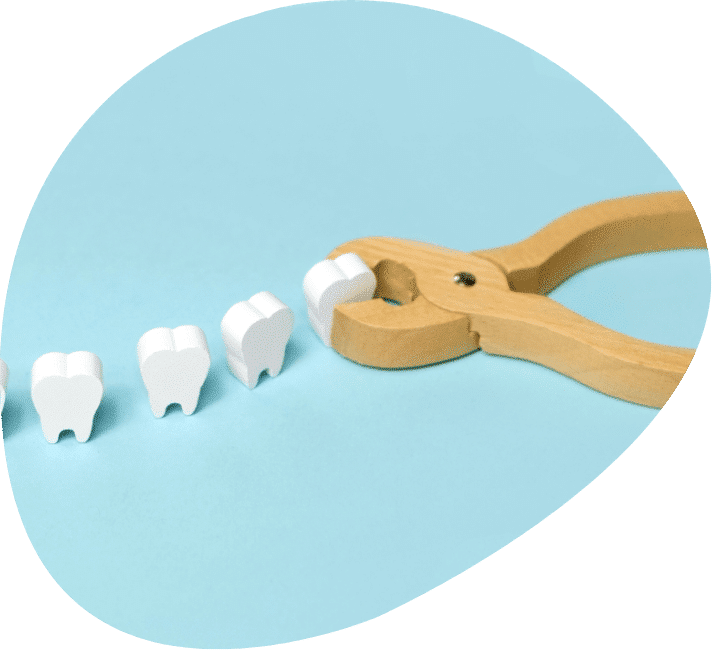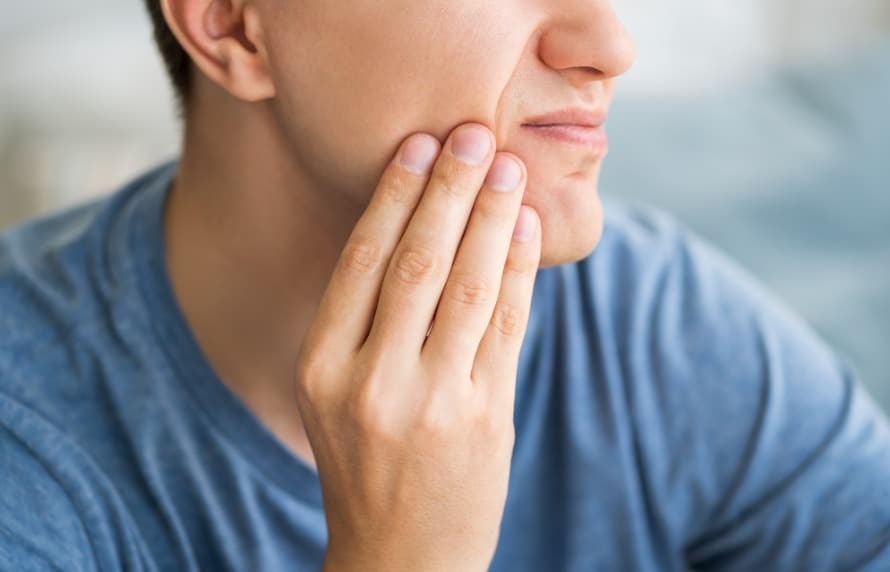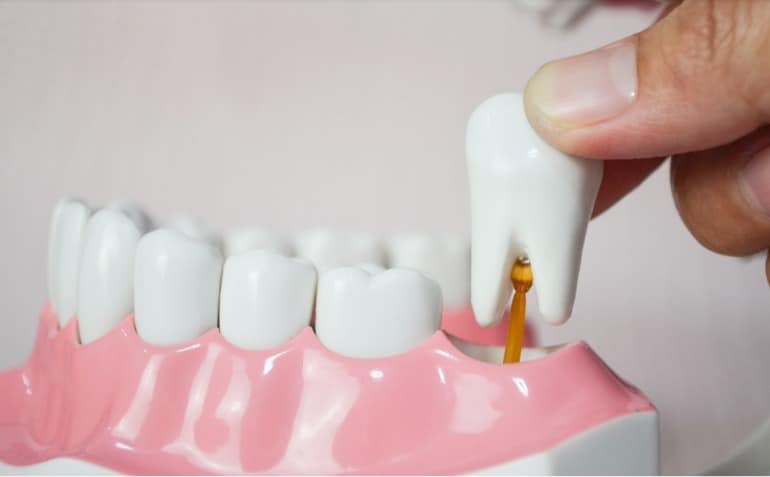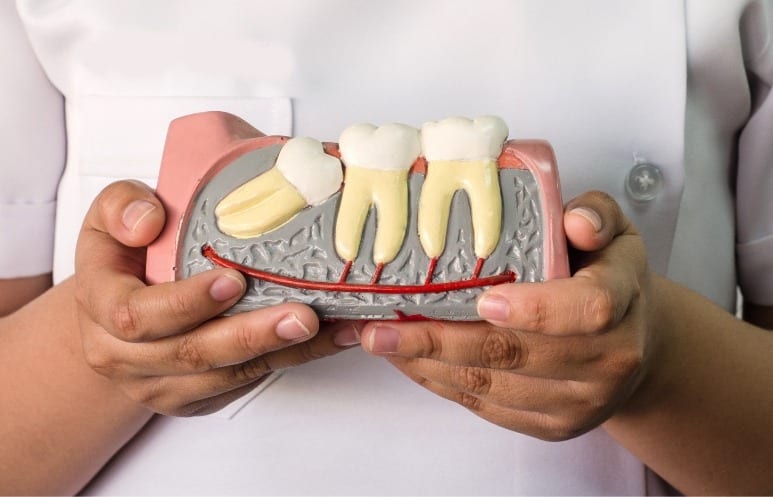Wisdom teeth/Extractions

Dentists generally do everything they can to keep teeth in place. However, in some cases, removal becomes the only possible solution for preserving oral health and integrity. This is often the case with wisdom teeth, those third molars that erupt late and sometimes irregularly. In all these situations, your dentist at Centre dentaire Taschereau in Brossard will make a full assessment before proceeding with a tooth extraction.


What are the special features of wisdom teeth?
Wisdom teeth, the large molars at the back of the mouth that appear long after the other teeth, are a legacy of our distant ancestors the great apes. They were useful for chewing raw food. Our eating habits and morphology have evolved since then, however, so that they don't always have enough space to erupt properly. This can lead to irregular eruption: impacted (left in) or semi-impacted (partially erupted) teeth, poor eruption angle, positioning outside the dental arch. In these cases, and with their complex location making them difficult to clean, wisdom teeth are at risk of developing problems.
Some risks associated with wisdom teeth
- Cavities that are difficult to treat: because wisdom teeth are set back, they are more difficult to treat. They could then deepen or spread to neighbouring teeth and tissues;
- The development of a dental abscess (a deep infection lodged near the roots of a tooth);
- Gum disease: bacteria concentrated around wisdom teeth can lead to tissue inflammation, even penetrating below the gum line and causing periodontitis (a deep-seated disease that can reach the alveolar bone);
- Pericoronitis: this infection of the tissues surrounding the crown of the tooth often affects semi-included teeth;
- The development of pre-cancerous or cancerous cysts, lesions or tumours due to frequent bacterial inflammation;
- Damage to neighboring teeth caused by the poorly angled root of a wisdom tooth;


Dental extractions : not just for wisdom teeth
Although wisdom teeth are the most commonly removed teeth, this type of surgery is also performed in other cases. Sometimes a permanent tooth is extracted to preserve the health and integrity of the surrounding teeth and tissues. This is particularly the case when a tooth is deeply infected or its foundation has been weakened by trauma or periodontal disease. At this point, extraction is not an end in itself: the removed tooth must then be replaced to restore full functionality to the smile and avoid a variety of problems.
Wisdom teeth extraction: assessment first
Although common, preventive wisdom teeth extraction is not systematic: your Brossard dentist will suggest it only if he or she feels their presence represents a risk. To determine the need for such surgery, he will carry out a complete evaluation of the oral structures, including X-rays. This examination, like tooth removal surgery, is possible as early as adolescence, even if the wisdom teeth have not yet erupted. By this time, they are sufficiently developed for their risks to be determined.
